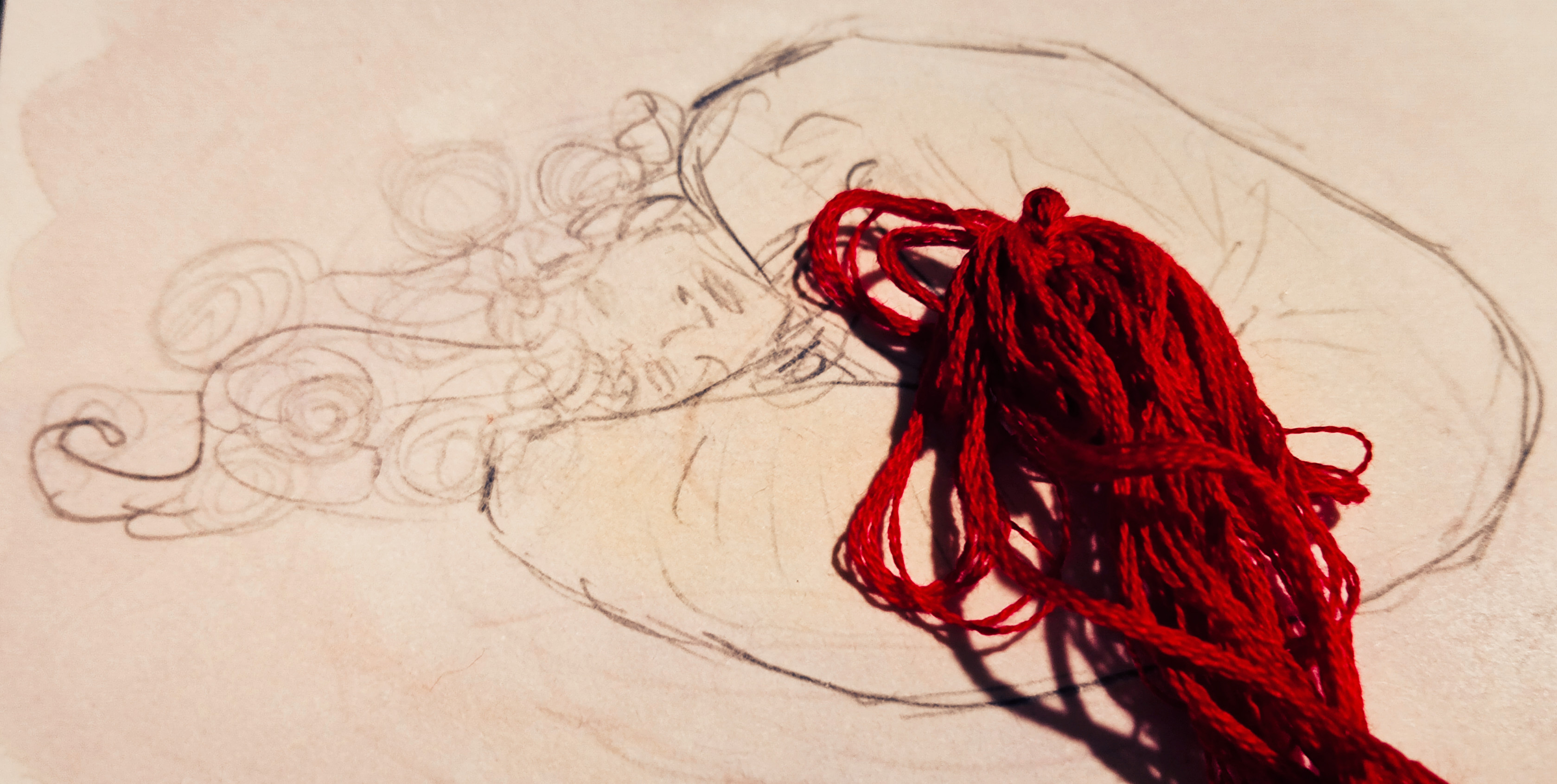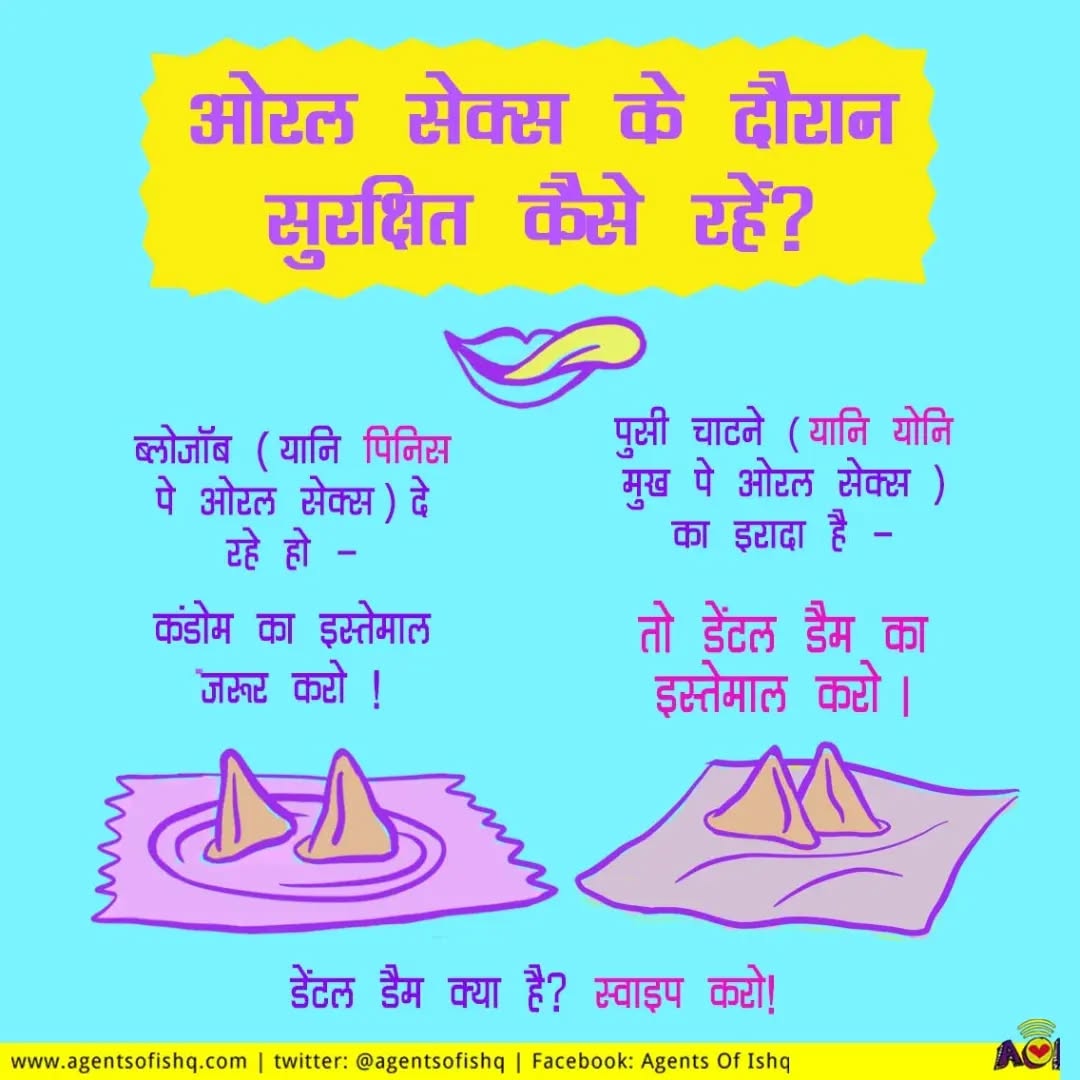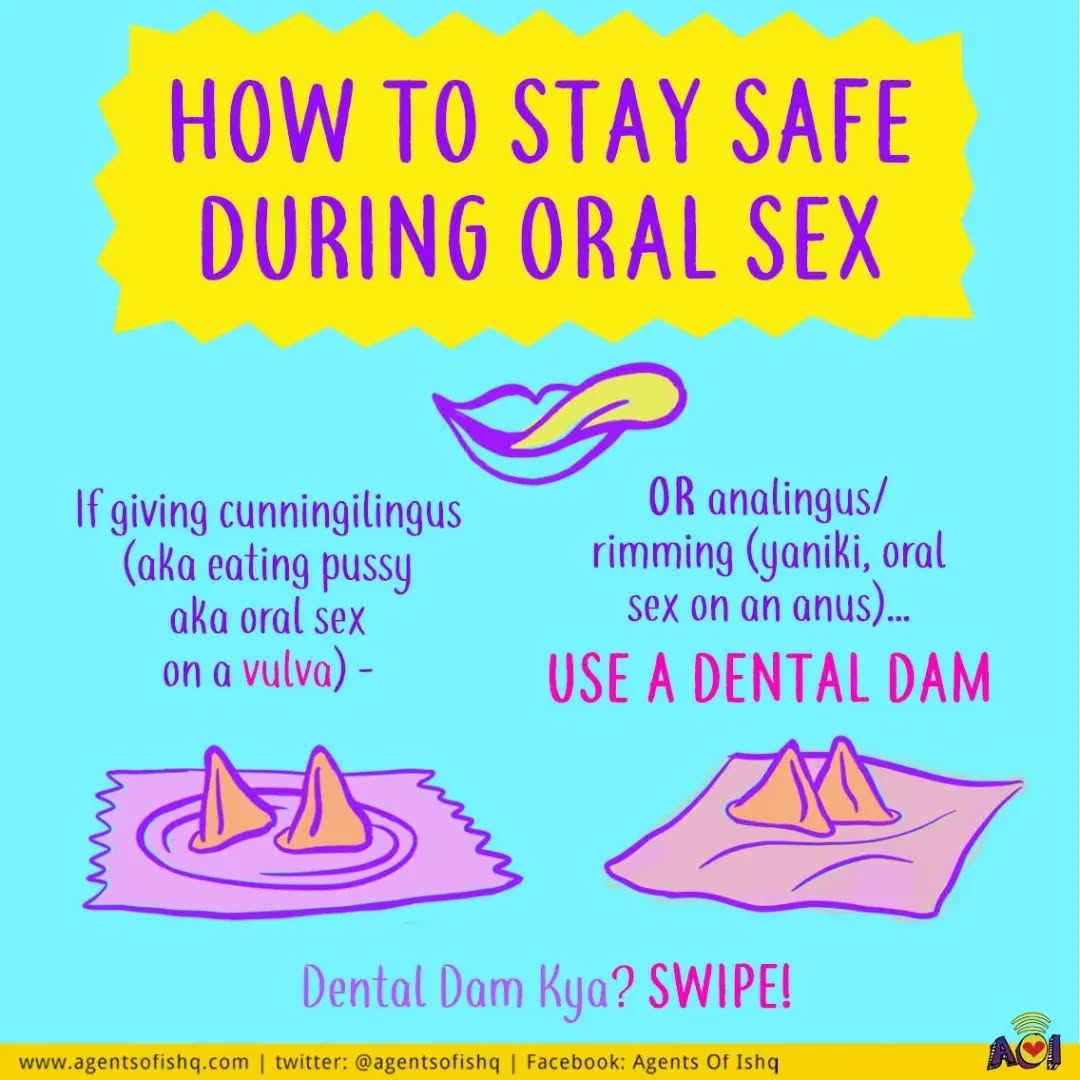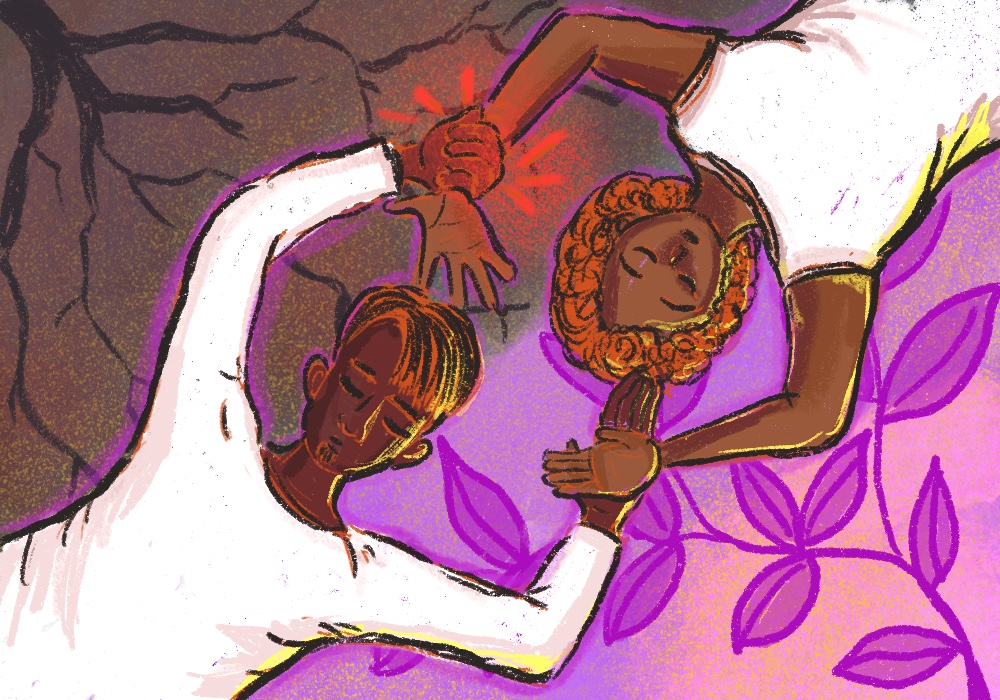 It was just a normal conversation. Meenu*, a dear friend – and maybe a little more than a friend – was upset and sharing some problems she was having with work. I tried listening to her and calming her down, but it wasn’t helping. And the frustration and stress – of my own unfinished work, and my agitation at not being able to calm her down – grew. Even though the cause for my panic seems so trivial to me now, the rush of emotions that I felt at the time was enormous. And not knowing how to cope with it, I did something horrendous.I hit her.The realisation of what I did, and the guilt it brought is unbearable even now. How had I been able to make that transition from hugging and expressing affection to being violent with her so easily? Searching for answers to this drew me back, to memories of being younger and witnessing beatings at home and learning to hit as a matter of course. Is that what shaped my ideas about touch? Then why did it seem at times like such an unsatisfactory explanation for what I did – that is, if there could be an explanation that wasn’t an excuse?Touch is in many ways fundamental to how we communicate – whether it is fear, love, authority, affection, or even just a sense of comfort – and it plays a big role in how we build relationships with people. Does what we learn about touch as children shape our relationship with it as adults? I decided to dig into my own memories, and speak to a few other people about theirs, to find out.
It was just a normal conversation. Meenu*, a dear friend – and maybe a little more than a friend – was upset and sharing some problems she was having with work. I tried listening to her and calming her down, but it wasn’t helping. And the frustration and stress – of my own unfinished work, and my agitation at not being able to calm her down – grew. Even though the cause for my panic seems so trivial to me now, the rush of emotions that I felt at the time was enormous. And not knowing how to cope with it, I did something horrendous.I hit her.The realisation of what I did, and the guilt it brought is unbearable even now. How had I been able to make that transition from hugging and expressing affection to being violent with her so easily? Searching for answers to this drew me back, to memories of being younger and witnessing beatings at home and learning to hit as a matter of course. Is that what shaped my ideas about touch? Then why did it seem at times like such an unsatisfactory explanation for what I did – that is, if there could be an explanation that wasn’t an excuse?Touch is in many ways fundamental to how we communicate – whether it is fear, love, authority, affection, or even just a sense of comfort – and it plays a big role in how we build relationships with people. Does what we learn about touch as children shape our relationship with it as adults? I decided to dig into my own memories, and speak to a few other people about theirs, to find out. * * *
When you think about touch within families, do you think of it as being comforting? Do hugs and caresses come to mind?They certainly do for me – my parents were sometimes affectionate with me as a child. At the same time I would often see my brother being beaten excessively by my parents for small mistakes that were more often than not blown out of proportion in their heads. It would upset me.Even so, I had internalised the fact that hitting someone was a natural and an okay response. I had also been told, “What kind of elder brother are you if you don’t keep your younger brother in control?” If I look back, I can clearly see how my behaviour changed towards my brother. From initially opposing my parents’ mistreatment of him, to hitting him myself when he was not able to understand a maths sum even after repeated explanations, my actions had shifted, even though on some level I knew what I was doing was not correct. I don’t think I can ever justify my aggression, but sometimes I felt like I had no choice. It was expected of me. And it was how I learned to express frustration and try to gain control of a situation.I know of other people, college students like me, for whom violence was a large part of childhood. Abhijit, a 21-year-old communications student, tells me he had been beaten a lot by his father, and used to feel aggression and hatred towards him. Gita*, a 21-year-old student of fashion design, also has a fractured relationship with her parents. The youngest of three siblings, she would see her brother and sister being beaten as punishment – though she never experienced it herself. However she says a consequence of witnessing this has been that she is not close to her parents, and she has severed ties to her father and to a certain extent, with her mother.My own parents’ actions seemed too harsh to me and I didn’t understand why it had to be so. I’m sure every family has their way of scolding and disciplining children, but my family’s way affected me quite a lot. I knew that their beatings – and my own participation in it – was wrong. But I still did it … and that left me very confused and anguished for a long time. I too had a rocky relationship with my parents as I was growing up.In the cases of Abhijit, Gita and me, our parents probably did what they thought was best for their children. All the same, even though not all of us were beaten by them directly, and violence wasn’t our only experience of childhood, simply witnessing their violence in our growing up years damaged our relationships with them. That was perhaps the opposite of what our parents intended, but it was a sad reality for us, at least while we were young. The shortage of loving touch created a rift in our families that hasn’t fully healed.But feeling the absence of loving touch from one’s family isn’t only for those of us who grew up with beatings. Radhika*, 22, pursuing an MA, lost her parents when she was very young. She lives with her guardians, whom she calls her father and mother. Although she has been living with them for quite some time, and they do care for her, the element of touch – that experience of someone affectionately running their fingers through your hair, or a warm tight hug – was missing. She feels she didn’t have the privilege of experiencing the affection one gets from one’s parents while growing up. And so, she is keen to experience it. She talks about how important touch and affection is in one’s childhood, and how the absence of it has taught her to value it more. Radhika also tells me about about how an older man touched her inappropriately when she was a child. Though at that age she was not aware about “good touch” and “bad touch”, she knew that she was uncomfortable with it. Even though it remains an unpleasant memory, it hasn’t made her averse to being touched – but rather increased her desire for a more caring, warm, affectionate touch.Does coming from a loving home where the only kind of touch you’ve experienced involves hugs and caresses, automatically mean having a healthy sense of touch as a grown-up? I have wondered about this sometimes. Meenu, who has just turned 21, and is in her final year of studying journalism, comes from a stable, happy family. (When I asked her about her family, she told me something that made me feel more guilt and pain for the way I treated her: “There has never really been any violence in my household, and so I’m not really used to it. I am used to being treated very nicely.”) Meenu has always been comfortable with experiencing and expressing physical affection to her mother and other women in the house. She is more reserved with the male members of her family when it comes to physical affection, but the love remains. Going to college has put her in situations where it is more common to touch others and be touched – bonding with friends by hugging, putting an arm around someone, pulling and pushing them playfully. And she feels that in all these situations she has been able to be a stable, open person, who knows as well as firmly asserts her boundaries in a healthy way. To me, she is one example of how when parents are loving and gentle, their children grow up to be confident and comfortable with themselves. My close friend Neelima*, a 22-year-old communications student, also says she had “a lovely childhood” and grew up with a healthy sense of touch. I have known her for four years as a happy-go-lucky, very physically affectionate person. So you will understand my surprise when she told me that she feels awkward about being touched, and is actually not fine with physical contact, except when it comes to people she is really close to. On some level she knows that she appears affectionate because she is a people-pleaser – she says and does things that she thinks people would like, at the cost of how she herself might really feel. She is afraid of losing her near and dear ones – an insecurity of hers, and I wonder sometimes if her showing tremendous affection to people close to her might be a function of this insecurity.At any rate, Neelima reminds me that in my search to find a link between touch in childhood, our relationships with our families, and touch in adulthood, there are no absolutes, no finalities. If having a happy childhood doesn’t necessarily guarantee that you have a healthy sense of touch as a grown-up, and you may still have to work on it, might it mean that growing up with an unhealthy sense of touch doesn’t necessarily mean that that’s how it must always be?
My close friend Neelima*, a 22-year-old communications student, also says she had “a lovely childhood” and grew up with a healthy sense of touch. I have known her for four years as a happy-go-lucky, very physically affectionate person. So you will understand my surprise when she told me that she feels awkward about being touched, and is actually not fine with physical contact, except when it comes to people she is really close to. On some level she knows that she appears affectionate because she is a people-pleaser – she says and does things that she thinks people would like, at the cost of how she herself might really feel. She is afraid of losing her near and dear ones – an insecurity of hers, and I wonder sometimes if her showing tremendous affection to people close to her might be a function of this insecurity.At any rate, Neelima reminds me that in my search to find a link between touch in childhood, our relationships with our families, and touch in adulthood, there are no absolutes, no finalities. If having a happy childhood doesn’t necessarily guarantee that you have a healthy sense of touch as a grown-up, and you may still have to work on it, might it mean that growing up with an unhealthy sense of touch doesn’t necessarily mean that that’s how it must always be? * * *
Speaking to different people about their early years has made me realise that for many of us, adolescence was a tough time. My formative years left me with scars that are yet to heal, and issues with low self-esteem, that spilled over into my relationships with other people – and perhaps this is the case for others as well. Some of us, as a friend of mine puts it, have been victims of victims, growing up with our parents’ violence. And whether we know it or not, we often absorb these behaviours – I see people around me who mirror their parents’ opinions and actions, and I know it’s the same for me too.But in diving back into my childhood looking for answers to the question of why I hit Meenu, my aim hasn’t been to dump blame for my actions on my parents, or to claim that that’s the only way I know how to be. With time, things have changed – I have cried before them, spoke to them about everything I had felt, and they too have responded with introspection and compassion. I understand now the intent behind their actions – they wanted to make sure my brother and I did everything right, to keep us safe from society’s comments and disapproval – though I do think there were better ways of expressing that concern. They could have let us know why they were disciplining us, and reassured us that we were still loved. Their love was something I was never sure of, growing up. And unlike the director of the film Kabir Singh, Sandeep Reddy Vanga, I don’t see violence as an expression of love. Sometimes we forget where love ends and possessiveness begins, and I think violence is a form of that possessiveness, used to control others.I felt traumatised by the violence in my childhood, but I think I need to move beyond it – others have before me.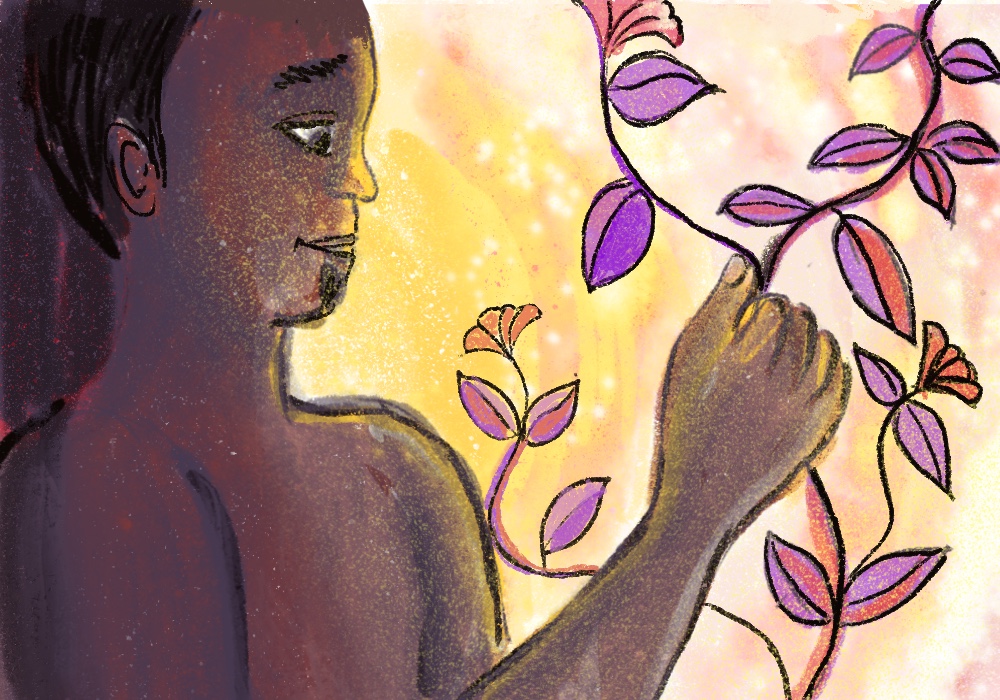 Abhijit says his relationship with his parents got better as he grew older and they disciplined him less. Gita says that even though she felt very affected by the violence she witnessed in her childhood, with time, she has started being at peace with herself, and says that whatever she had witnessed shaped the way she is today – silent, stoic, and composed. She tells me that when she found herself battling with issues, she attended a 4-day yoga session that allowed her to examine her actions and emotions, helped her deal with her problems, and helped her be a better person. Though she may not have reached a place of healing by working through her problems with her family, she was able to take the initiative to find it outside of her family – something I deeply admire her for, and hope to learn myself.I feel cheered by the fact Gita’s experiences don’t appear to have affected how she experiences touch as an adult. At first glance, she does not seem like someone who likes hugs. But if you are really dear to her, she becomes a hugger, constantly showering you with affection. She likes to let people know even when she feels a tinge of affection for them: she’ll tell them, act it out, or leave notes for her loved ones that make them feel good. Funnily, if she had to be a parent, she says she would be, “A contradictory one. One who is very loving and caring, but is ready to hit and scold the child to make sure that things are done the way they ought to be.”And the more I think about it my own parents and my childhood, I realise that violence hasn’t been their only legacy.Have you ever taken a step back to think about how you behave with children around you? For me, I have mostly replicated the mannerisms and habits that I have seen in my mother. The words that she uses, and the way she plays with them, are now mine. Other friends tell me they’ve noticed this in themselves too.I also think that the way I go about romance is something I learned from my parents. I have often found myself imagining scenarios in which I am expressing my love to the significant one in my life, in ways I have seen my father express his love for my mother – teasing her, random kisses, romantic nicknames, and so on. Literature and other media might have had a little influence on my notion of romance, but most of it comes from what I saw between my parents and grandparents. I guess I mirror my parents’ actions in more ways than I realise.And speaking with Shivam, 22, my hostel roommate, made me realise a beautiful thing – my parents have taught me the importance of being sensitive and considerate of others. To think about how someone might feel or get affected by my actions and words.Moving forward, we all in some way know what’s right or wrong, and I’ll try to stick to that. And when I have children of my own, and have to deal with the pressure of caring for, protecting, and nurturing a whole human being, I hope I would be more willing to tailor my actions to be supportive of my children, to employ methods which are more encouraging towards better behaviour than disciplining bad behaviour. To be more open and willing to accept their mistakes, as well as mine and those of my partner, friends, and family. After all, we’re all in the continuous process of learning.And from Meenu, who has given me the gift of forgiveness, I’ve learned that I have to let the past go and learn to be better. She has taught me calmness and compassion, that there are other ways of dealing with stress and conflict that don’t involve lashing out. And she’s shown me that the person I want to be from now on depends not on my parents, or my childhood, but on me. *Name changed
Abhijit says his relationship with his parents got better as he grew older and they disciplined him less. Gita says that even though she felt very affected by the violence she witnessed in her childhood, with time, she has started being at peace with herself, and says that whatever she had witnessed shaped the way she is today – silent, stoic, and composed. She tells me that when she found herself battling with issues, she attended a 4-day yoga session that allowed her to examine her actions and emotions, helped her deal with her problems, and helped her be a better person. Though she may not have reached a place of healing by working through her problems with her family, she was able to take the initiative to find it outside of her family – something I deeply admire her for, and hope to learn myself.I feel cheered by the fact Gita’s experiences don’t appear to have affected how she experiences touch as an adult. At first glance, she does not seem like someone who likes hugs. But if you are really dear to her, she becomes a hugger, constantly showering you with affection. She likes to let people know even when she feels a tinge of affection for them: she’ll tell them, act it out, or leave notes for her loved ones that make them feel good. Funnily, if she had to be a parent, she says she would be, “A contradictory one. One who is very loving and caring, but is ready to hit and scold the child to make sure that things are done the way they ought to be.”And the more I think about it my own parents and my childhood, I realise that violence hasn’t been their only legacy.Have you ever taken a step back to think about how you behave with children around you? For me, I have mostly replicated the mannerisms and habits that I have seen in my mother. The words that she uses, and the way she plays with them, are now mine. Other friends tell me they’ve noticed this in themselves too.I also think that the way I go about romance is something I learned from my parents. I have often found myself imagining scenarios in which I am expressing my love to the significant one in my life, in ways I have seen my father express his love for my mother – teasing her, random kisses, romantic nicknames, and so on. Literature and other media might have had a little influence on my notion of romance, but most of it comes from what I saw between my parents and grandparents. I guess I mirror my parents’ actions in more ways than I realise.And speaking with Shivam, 22, my hostel roommate, made me realise a beautiful thing – my parents have taught me the importance of being sensitive and considerate of others. To think about how someone might feel or get affected by my actions and words.Moving forward, we all in some way know what’s right or wrong, and I’ll try to stick to that. And when I have children of my own, and have to deal with the pressure of caring for, protecting, and nurturing a whole human being, I hope I would be more willing to tailor my actions to be supportive of my children, to employ methods which are more encouraging towards better behaviour than disciplining bad behaviour. To be more open and willing to accept their mistakes, as well as mine and those of my partner, friends, and family. After all, we’re all in the continuous process of learning.And from Meenu, who has given me the gift of forgiveness, I’ve learned that I have to let the past go and learn to be better. She has taught me calmness and compassion, that there are other ways of dealing with stress and conflict that don’t involve lashing out. And she’s shown me that the person I want to be from now on depends not on my parents, or my childhood, but on me. *Name changed

